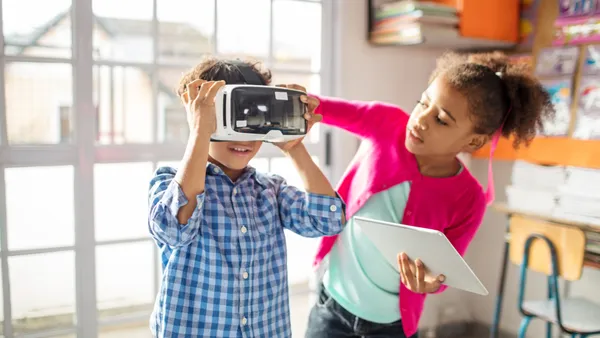Dive Brief:
- Rebecca Scott, a librarian at North High School in Downers Grove, Ill., writes for eSchool News that there are a variety of ways librarians can adapt to their changing roles, maximizing their opportunities to assist teachers in using technology to improve student learning.
- Scott advises that librarians should attend department meetings to share what they can offer and also to learn what they can do to help educators meet their goals, and they can also meet with teachers' professional learning communities (PLCs) to share simple and effective tech tools and practices.
- She suggests that librarians can assist teachers in updating their existing lesson plans, increase student engagement by encouraging them to share their own expertise, and be willing to "go above and beyond" in assisting students and educators who have questions about tech tools, citations and resources.
Dive Insight:
While technology's footprint in schools has grown exponentially in the last decade, that hasn't necessarily been the case with IT staff. For many buildings, that role has fallen on the shoulders of librarians, who truly are media specialists. Many resources librarians were traditionally in charge of have moved to digital formats, and school libraries have grown to include elements like makerspaces and collaborative learning environments with flexible furniture options.
Amid this transition, librarians must also have the professional learning opportunities and support they need to adapt as these roles evolve. Policymakers — many of whom have expressed support for more technologically advanced school environments, especially when computer science is involved — must be kept aware of the changing needs that come with this. The need for that additional training and people within support roles will likely necessitate additional expenses that might not yet be considered in funding, but that administrators can begin advocating for.













